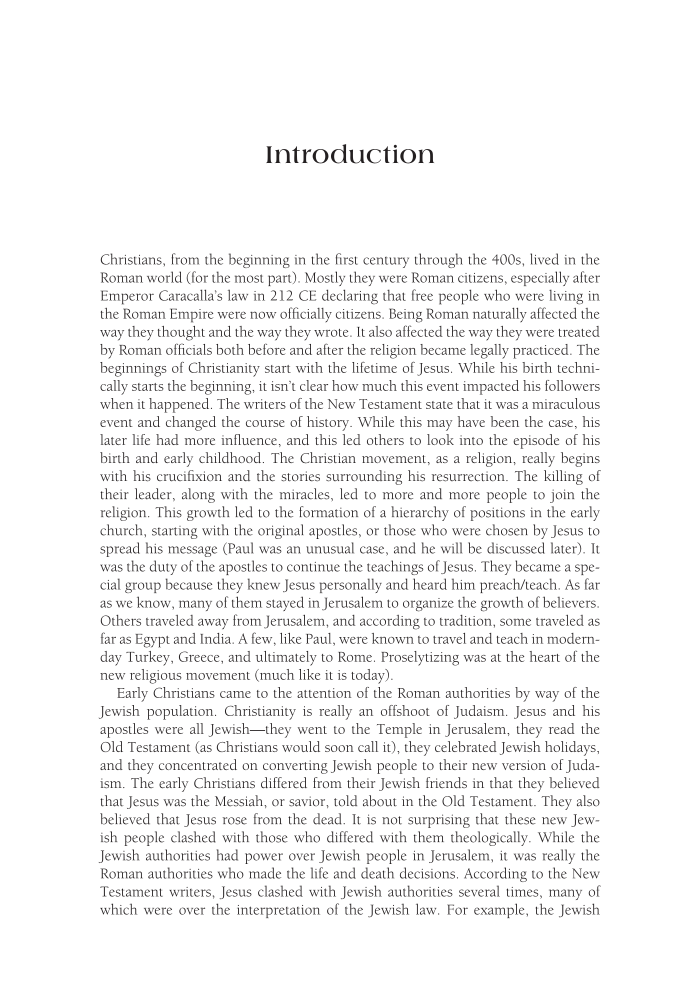Introduction Christians, from the beginning in the first century through the 400s, lived in the Roman world (for the most part). Mostly they were Roman citizens, especially after Emperor Caracalla’s law in 212 CE declaring that free people who were living in the Roman Empire were now officially citizens. Being Roman naturally affected the way they thought and the way they wrote. It also affected the way they were treated by Roman officials both before and after the religion became legally practiced. The beginnings of Christianity start with the lifetime of Jesus. While his birth techni- cally starts the beginning, it isn’t clear how much this event impacted his followers when it happened. The writers of the New Testament state that it was a miraculous event and changed the course of history. While this may have been the case, his later life had more influence, and this led others to look into the episode of his birth and early childhood. The Christian movement, as a religion, really begins with his crucifixion and the stories surrounding his resurrection. The killing of their leader, along with the miracles, led to more and more people to join the religion. This growth led to the formation of a hierarchy of positions in the early church, starting with the original apostles, or those who were chosen by Jesus to spread his message (Paul was an unusual case, and he will be discussed later). It was the duty of the apostles to continue the teachings of Jesus. They became a spe- cial group because they knew Jesus personally and heard him preach/teach. As far as we know, many of them stayed in Jerusalem to organize the growth of believers. Others traveled away from Jerusalem, and according to tradition, some traveled as far as Egypt and India. A few, like Paul, were known to travel and teach in modern- day Turkey, Greece, and ultimately to Rome. Proselytizing was at the heart of the new religious movement (much like it is today). Early Christians came to the attention of the Roman authorities by way of the Jewish population. Christianity is really an offshoot of Judaism. Jesus and his apostles were all Jewish—they went to the Temple in Jerusalem, they read the Old Testament (as Christians would soon call it), they celebrated Jewish holidays, and they concentrated on converting Jewish people to their new version of Juda- ism. The early Christians differed from their Jewish friends in that they believed that Jesus was the Messiah, or savior, told about in the Old Testament. They also believed that Jesus rose from the dead. It is not surprising that these new Jew- ish people clashed with those who differed with them theologically. While the Jewish authorities had power over Jewish people in Jerusalem, it was really the Roman authorities who made the life and death decisions. According to the New Testament writers, Jesus clashed with Jewish authorities several times, many of which were over the interpretation of the Jewish law. For example, the Jewish
Document Details My Account Print multiple pages
Print
You have printed 0 times in the last 24 hours.
Your print count will reset on at .
You may print 0 more time(s) before then.
You may print a maximum of 0 pages at a time.


















































































































































































































































































